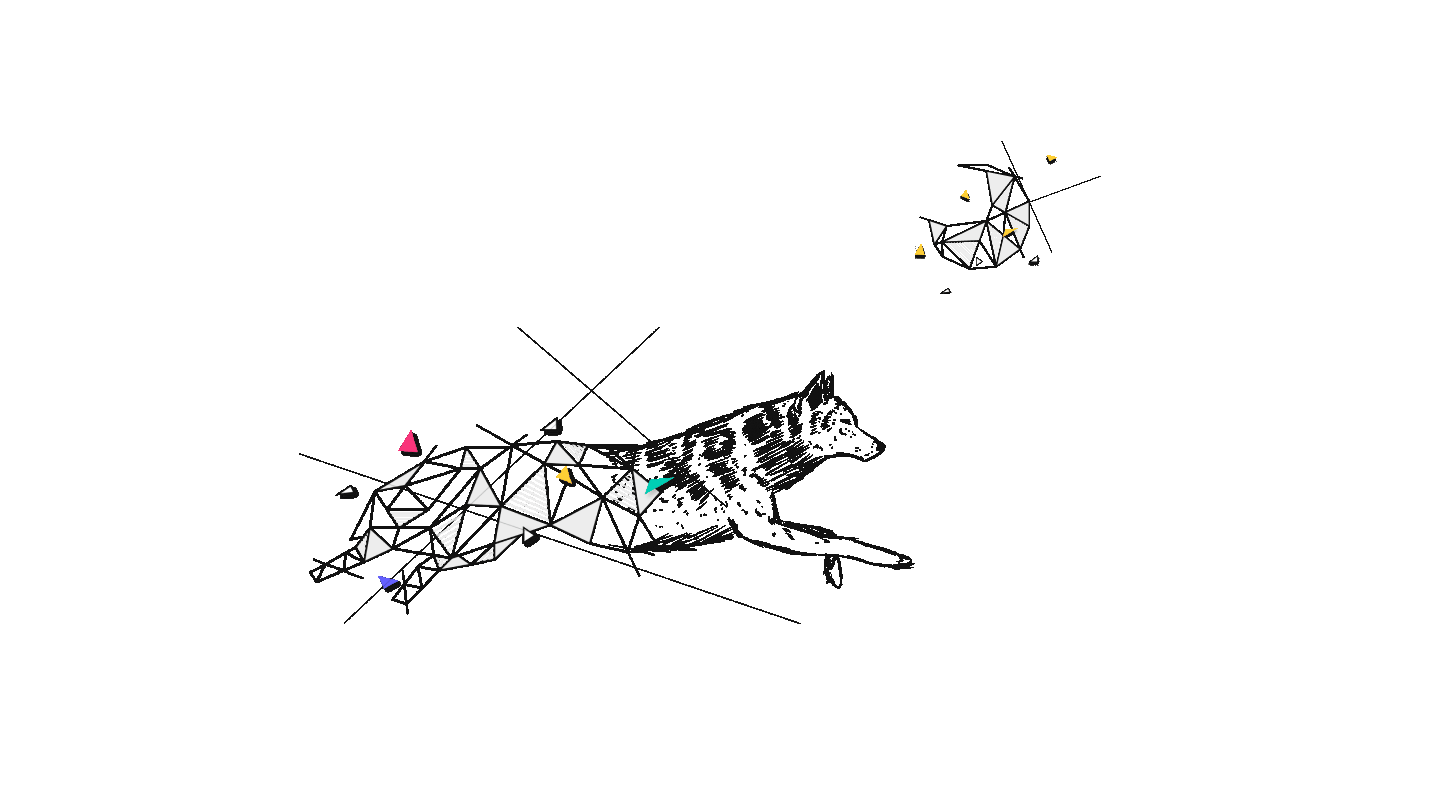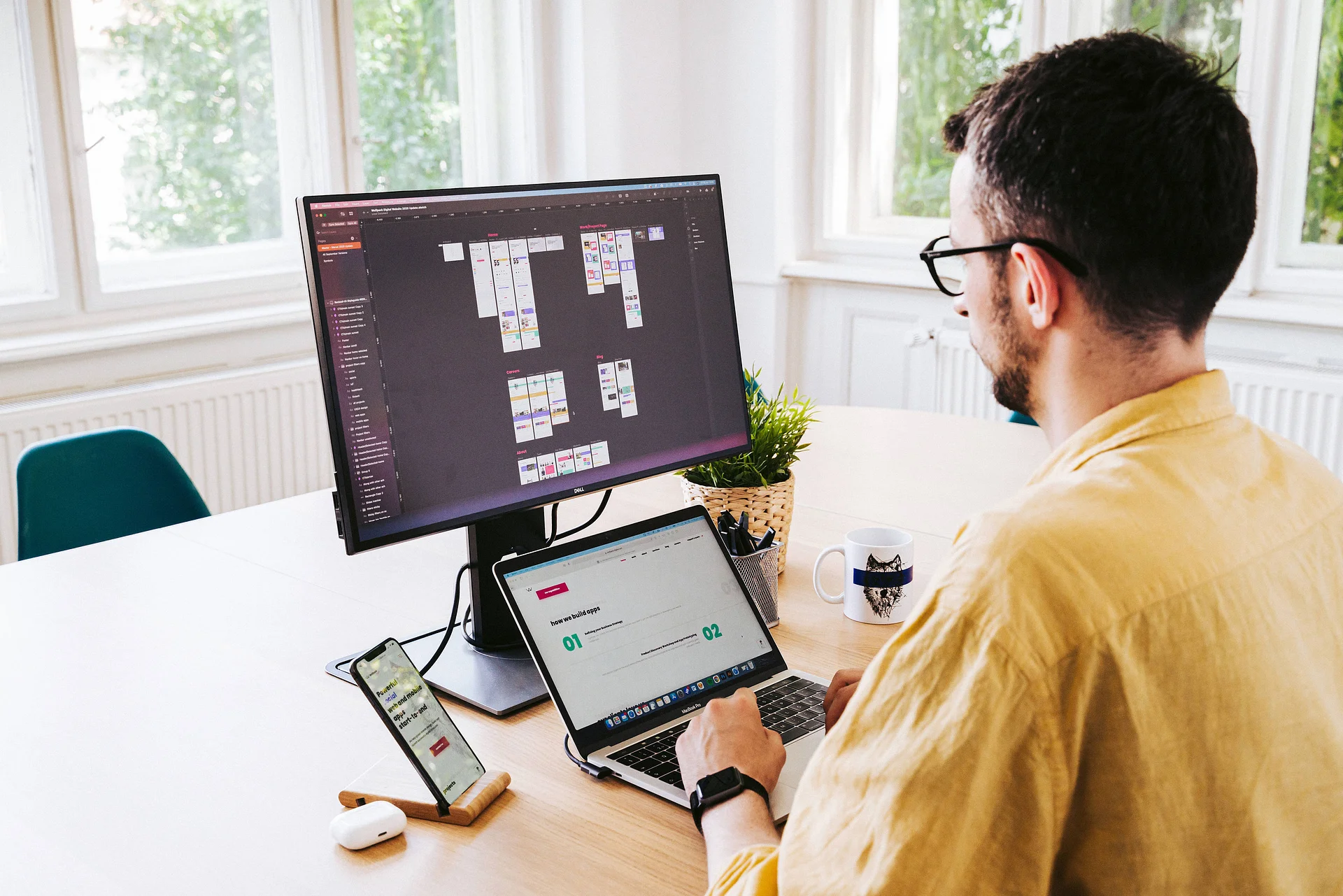Nowadays, the impostor syndrome is frequently encountered, especially by junior designers, starting their first jobs. Creative fields are often subjective, leading to insecurities that can manifest as impostor syndrome.
Suddenly you’re in a new environment doing things you’re not used to, using terminology you didn’t know existed a few months ago and training your brain to work radically differently. I get it; it does take some time to get used to sharing your designs and speaking about them. It could be daunting at first, but being in a safe place could help you overcome it quickly.
In this article, I’ll talk about my personal experience and provide a few suggestions about overcoming impostorism.
What is impostor syndrome? 🤔
“Impostor syndrome is an internal experience of believing that you are not as competent as others perceive you to be.”
Source: https://www.verywellmind.com/
To put it simply, impostor syndrome is the experience of feeling like a phony in some area of your life, despite any success that you have achieved in that area.
What is the reason behind it?
In my case, the impostor syndrome might have occurred for two reasons:
-
The learning path – Being a self-taught designer might not give you the same confidence in your knowledge as someone who has studied the subject in a more organized environment.
-
How we see others - People tend to compare themselves to the “ideal” figures they see online or even to their coworkers who are more experienced or have more expertise.
Learning path 👩🏻🏫
Have you ever wanted to learn something new but had no clue what to begin with?
Well, that’s how some of us have started our design journeys. So, you start learning how to use a design software, watch some tutorials, and then just go with the flow. That’s fine, but when you don’t have a plan, you tend to start rowing in all directions without an end goal. And when you start working on real projects, you might doubt your choices and not feel confident enough to showcase your designs because you worry that others will be harsh on you.
Once you have a solid base, you can easily start building on it. For example, here at Wolfpack Digital, in the beginning, they helped me realize where I lacked knowledge, and what to consider improving. Being guided by the other designers made me feel in a safe place, where mistakes were not something to fear, but opportunities to evolve and grow.
Learn about areas that you are passionate about and the ones that can help you in your day-to-day life or work, but never assume that you are not a good designer just because you don’t know all the fancy terms/buzzwords used in the industry. Learn as you go, and never fear failure because it will only help you realize what you need to focus on more. 🎯
How we see others 👀
Every day we see people online, or coworkers, that seem to have everything figured out and seem to have a solution for every problem. The reality is that, sometimes, even the best of us can feel like an impostor. That’s perfectly fine as long as it encourages you to work harder and develop your best self.
The goal is not to compare yourself with others because we all evolve differently, and each experience contributes to our development as an individual, and as a designer. We all see the world with different eyes, so there’s nothing wrong with having a different perspective than the others - that doesn’t make you any less of a designer.
I fell into that trap myself when I began my first job as a designer, and apart from extra stress, there was nothing that it brought to the table. Seeing that everybody else was so good at what they were doing made me wonder if I truly belonged there. And I learned to trust myself and the process. Of course, it wasn’t simple, but my colleagues helped me a lot.

The fact is that no matter how much you know, there’s always more to learn. And that’s the thing that makes being a designer so much fun.
Design is changing and growing in complexity, with many sub-disciplines surfacing. Over the past 20 years, terms like UX Design, Service Design, or Design Thinking have taken the industry by storm. So, it’s OK not to be an expert in all the areas of design, given the large number of sub-disciplines it encompasses.
How to deal with it
If you feel like impostor syndrome has snuck into your professional world, it’s important to recognize and manage it. The good news is that there are plenty of ways to ameliorate impostor syndrome. Here is a list of tips you might find useful:
🧐 Analyze your abilities – Compare your accomplishments and strengths to your self-evaluation. Know that every challenge is an opportunity to grow, not to prove that you’re a fraud. Start with the right mindset, and be confident that you can do it.
🤫 Don't keep it to yourself – It’s liberating. If you’re close enough to your colleagues at work, talk to them about it.
I was lucky enough to have such open and understanding colleagues that I could talk to. They opened my eyes, and I realized that each of us is different, and there’s no point comparing myself to more experienced designers and that I should focus on myself instead. And I started comparing myself to my old self, and that really struck me: I was able to see my evolution and how much I’ve learned in such a short time since joining the pack.
✌️Learn to get feedback (yes, that’s a skill) – Feedback is essential, and we need to be collaborative, but be careful; feedback is a double-edged sword. Use the input for what it’s meant, don’t see it as a criticism, and don’t act as if your colleagues are taking a pop at you.
I was lucky that here at Wolfpack Digital, giving quality feedback is part of the culture. It’s like a gift that benefits both the giver and the receiver. It helped me reinforce my existing strengths but also kept me goal-oriented.
🙅♀️ Stop comparing yourself to others – When you compare yourself to others, chances are you will find some flaw in yourself that will fuel your feelings of not being good enough or not belonging.
👀 Take every opportunity to improve your skills – If you’re not confident enough in your work, try to take every opportunity to learn more and be more prepared.
For example, joining design groups might help you get valuable insights, find useful resources, and expand your network.
Are you looking to get out of your comfort zone? Then, design challenges might spark your interest.
Conclusion
Impostor syndrome can only be eliminated through discipline and self-awareness. Focus on yourself more and start gaining more confidence in yourself and your talent. Remember, everyone started as an awkward beginner once. Being an expert comes with hard work, persistence, commitment, and time.
“If you’re surrounded by experts, then you’re in an extremely privileged position.”
Source: uxdesign.cc
They’ve been where you are before and are in the best position to help you navigate forward.
That’s one of the things I’m super thankful for here at Wolfpack Digital: my fellow designers, who are there for me every step of the way, guiding me. ❤️







